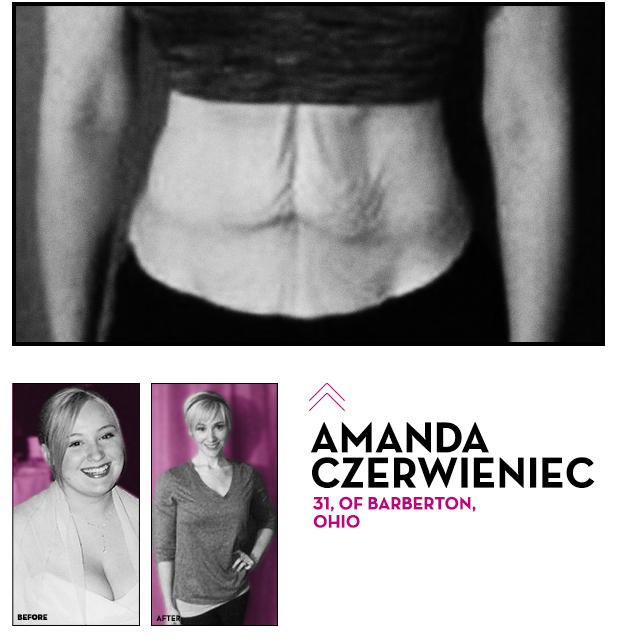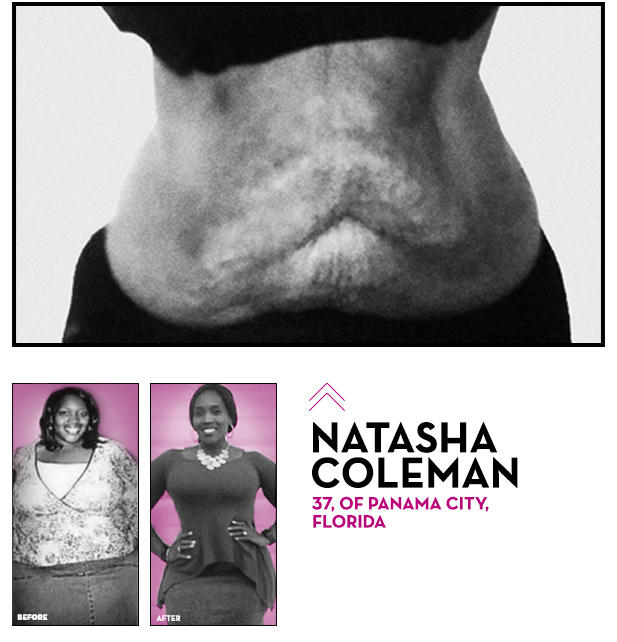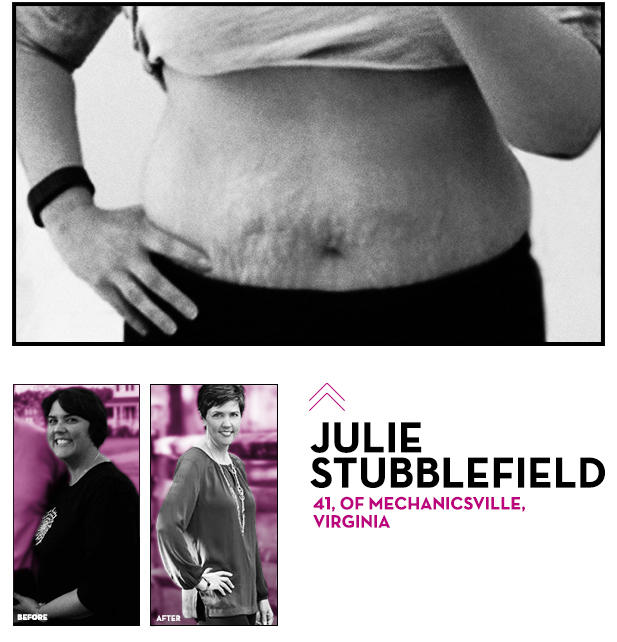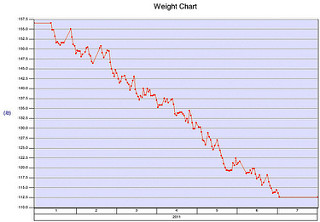 Photograph by Amanda Czerwieniec
Photograph by Amanda Czerwieniec
"I was very surprised because you see 'fitspo' [images], and you think you're going to look like that at the end," says Amanda Czerwieniec, 31, of Barberton, OH. Czerwieniec lost more than 130 pounds over the course of 2 years through diet and exercise, but despite shedding the pounds over an extended period of time, her skin still didn't bounce back the way she thought it would.
Natasha Coleman, of Panama City, FL, didn't get what she bargained for either. "This is not the body I signed up for," says Coleman, who has lost 223 pounds so far.
"I'm still heavy, I'm just deflated," Coleman says—and, in the simplest of terms, she's right. When a person loses the extra fatty layers underneath their skin, what they're left with is basically loose, hanging, empty skin, according to Steven Davis, DO, a board-certified plastic surgeon.
 Photograph by Natasha Coleman
Photograph by Natasha Coleman
In some instances, that hanging skin can cause irritation or other infections or rashes—and a skin-removal procedure is required. But most of the time, it's just a serious nuisance.
"My arms flap ridiculously; when I bend down, I can hear the skin between my legs flapping," Coleman says.
"I go to the grocery store and I won't reach up for something because I don't want someone to see what my stomach looks like," says Maria Moser, 34, of Middletown, MD. Morse gained and lost about 50 pounds during each of her three pregnancies.
The excess skin isn't only a physical issue; it takes a toll on mental health as well. "Losing the weight was the easy part; the mental part was the hardest," says Julie Stubblefield, 41, of Mechanicsville, VA. Stubblefield lost 70 pounds over a 9-month period and, like the other women, was surprised at the aftermath. "I felt like my body had betrayed me; it didn't look the way it was supposed to," she says.
 Photograph by Julie Stubblefield
Photograph by Julie Stubblefield
Part of the problem is that the media misleads us, suggests Helen Coons, PhD, president and clinical director at Women's Mental Health Associates in Denver, CO. "Women featured in TV, online, and print images frequently have complete makeovers—flawless skin, gorgeous hair, stylish clothes—it's unrealistic," she says.
But a critical self-view is also to blame for post–weight loss unhappiness. "Women who have been overweight remain very critical of their size, shape, and appearance, even after the pounds are gone," Coons adds. After weight loss, dissatisfaction with the loose skin often takes the place of unhappiness with the number on the scale.
The trick to banishing these negative thoughts is to shed the perfectionist mindset, suggests Coons. (Easier said than done, of course.) But focusing on the positive steps you've taken toward a healthier, longer, more fulfilling life can make those critical self-statements seem insignificant.
"It took a lot of time to come to terms with how my body looks now, but I've realized I am so much more than how I look," Stubblefield says. Now, when she sees the excess skin around her midsection, she sees it as a reminder of where she came from—and motivation to maintain her new, healthy lifestyle. "It's a positive," she says. "I wouldn't have this excess skin if I hadn't gone through a transformation."




